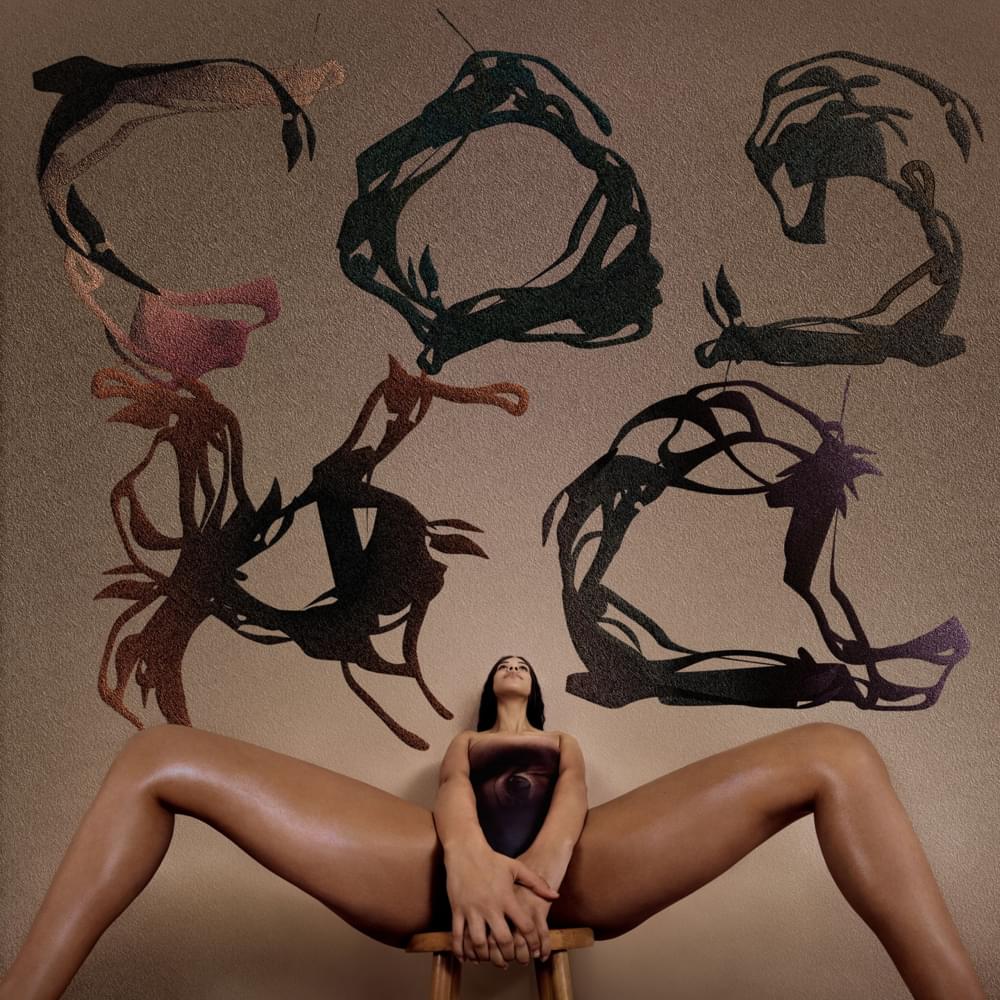The first sound you hear on the Irish singer Cosha’s first album, Mt. Pleasant, sounds like a ripe gourd clattering on a piano bench. It’s percussive, hollow, and a little arrhythmic; the way it reverberates through the sonic space has a woody, biological feeling.
That sound lends album opener “Berlin Air” a surreal aura – even as it streamlines into something more approachable. Its diffuse textures burst across her unhurried, swaying melodies, while her singing periodically slips into wordless scatting. It feels difficult to pigeonhole: a stream of grand, unfiltered sensation. “I cannot describe it/Ain’t no feeling like it,” goes one line in the chorus.
After the final refrain, all the instruments drop out and that clattering gourd sound repeats, then rolls around beneath the soundscape. It’s encased by digital strings and 808 handclaps, clipped vocal samples and warm keyboard tones. It could be a hand drum; it could be a heartbeat. It could be the sound of thoughts bouncing around in her head.
Cosha had plenty of reasons to ruminate while making Mt. Pleasant. She was raised outside of Dublin, but left for London at the age of 17 to study music. There, she met the producer Mura Masa and collaborated with him extensively under the name Bonzai.
They first worked together on his mixtape Soundtrack to a Death, and then on her EPs Royah, Lunacy, and Sleepy Hungry. Their work earned the both of them major-label deals, and Cosha burrowed deeper into the avant-pop side of the industry, co-writing with Charli XCX and touring with Nao and Flume. But she didn’t score a hit – the elusive and all-important currency of pop music – and quietly ended her deal with one final mixtape in 2018.
That final mixtape was titled R.I.P. Bonzai as a farewell to her old persona, and listening back to her old music, it makes sense that she’d feel the need to draw a line between the past and the present. I hear a different sort of approach in Bonzai’s work.
It’s somehow both more and less linear than Mt. Pleasant; her old songs tumble into cathartic climaxes and then abandon them, restlessly forsaking structure for texture. The sounds are clubby and loud, pulling in elements of drum n’ bass, acid house, and EDM, while her vocal performances switch between fast-paced rapping, R&B vocalization, and belty pop choruses. Her lyrics are percussive and impressionistic; they don’t unfold in a narrative sense, but they sound great. It feels unfiltered in a different way, like she’s going in a million different directions and trying to describe all of them simultaneously.

Now that I’m tied up, lean on me/All of this sweetness, ecstasy/How long was I sleeping?
It’s not that Mt. Pleasant isn’t equally kaleidoscopic, it’s that Cosha directs those impulses with more specificity. “Berlin Air” has just as many layers as any song from Royah, but Cosha’s all-at-once style here portrays the simultaneously overwhelming and comforting feeling of new love. Its tempo is (slightly) slower and its arrangement feels more grounded: most of the song’s intensity and drive comes from its percussion, while the melodic sounds add warm physicality.
Where a Bonzai song might accentuate a moment with a rave klaxon or a sample of an emergency siren, “Berlin Air” is embroidered with pizzicato strings and swarms of multitracked harmonies on specific words. The feeling of being overwhelmed – of engaging with everything all at once – is channeled into specific situations that can elucidate her thoughts and feelings indirectly.
This specificity lets her actively navigate through what she’s feeling instead of getting trapped by it. Listen to “Run The Track,” the fifth song on the album. Its name evokes movement, but it initially feels tight and tense, as Cosha’s processed vocal stretches over a taut digital bassline. “Why do I always want you most/when you’re always so difficult?” she drawls, portraying the kind of frustrated stalemate that feels all-enveloping when you’re in it.
But as soon as she asks the question, she takes a look at herself, stepping outside of her own subjectivity. “Maybe I’m pa-ra-noid,” she thinks, stretching the word out over three measures. A distant synth fills in the space between her and the bassline, and a hi-hat adds shape and momentum to the groove. Then she says “run the track,” and the song pops open around her, synths flying, bass buzzing.
She repeats this gesture, later, in lieu of a chorus. It makes the song’s title a metonym for a mind’s circular thoughts. A track, in both the athletic and musical senses, is repetitive; it’s the same each time. To run the track is to experience a linear, repeated progression; so when she says “run the track,” we know that she’s back in the same place. But then the second verse predicts the future with clarity borne of experience: “One of these nights you’re gonna come home/and you’ll wonder where have I gone/And you’ll miss me in a good way.”
As we learn to anticipate the moment where the song breaks open, and as her attitude shifts into self-assuredness, the title begins to read less as a prophecy and more as a wry joke. When she says “run the track,” she also means “get it over with, so I can get to the good stuff.” The song ends by moving into a new section where she affirms that the subject of the song is the one, that she’s “got two heels up on the pavement/I’mma buckle up good ‘til the race run.” This isn’t a song about overcoming conflict and doubt, but one about accepting their presence and not allowing them to guide her decision-making. Ultimately, she’s in control.

Now it’s our last dance til they close this place/and I don’t wanna leave/I’m asking you, baby, stay/I got this bad, all around my waist
Control – having it, using it, flexing it – pops up again and again throughout the album. Cosha’s character on Mt. Pleasant is emotive, but she’s never overpowered. Her songs are built on the inherent drama of squaring openness with strength, and she steadfastly refuses to compromise her own point of view. This makes her treatment of sexuality especially compelling.
“Lapdance From Asia,” a collaboration with the London rapper Shygirl, brings out this self-possessed vulnerability. Cosha has said that the song was written about a dancer named Asia who gave her a lap dance in real life, and that it’s meant to reflect the “carefree and happy” energy of the moment. The soundscape is sensual and lightly psychedelic, skirting the edge of parody, with zill finger cymbals and vaguely porny wah-wah guitars.
But the song’s cacophony of vocal overdubs – sampled, layered, harmonizing and setting countermelodies – makes it feel looser, warmer, and more subjective than the choreographed erotic narratives it’s referencing. This follows through in the lyrics, too. Songs about sex workers run the risk of objectifying the women they’re supposed to celebrate, but Cosha largely sidesteps that trap by focusing directly on what she herself is feeling. She doesn’t attempt to speak for Asia or to demand anything from her. Instead, she actively refutes the idea that she’d even want to: “She was a bold girl/Had opinions/That’s what I like to see,” she sings.
It’s notable that Shygirl’s characteristically raunchy energy doesn’t explode through the song the way it does in her solo work. There, her sexuality is intense and insistent, used to flex power and make her presence seem superhuman; her voice is often filtered through Auto-Tune or discordantly multitracked, so she sounds like a cyborg or a goddess.
But here, she adopts a near-whisper to suit the song’s simmering, laid-back sensuality. Her murmurs enter the track from all different angles, like her thoughts are rising out of the ether. And while her voice is layered over Cosha’s, her tone and approach are distinct: earthier, rougher, more seductive. At the end of her verse, she repeats the lines “It’s just me/It’s just you” in a way that layers the words “me” and “you” over each other, metaphorically closing the distance between herself and her subject.
In this setting, desire erases the boundaries between Cosha, Shygirl, and Asia – but instead of destroying their individual identities, this intimacy reinforces them, allowing each person to be present as herself. “Hanging from another balcony/Struggling to get a little peace/Suddenly that don’t mean nothin’,” Cosha sings elsewhere on the song. The peace she sought elsewhere is found here, within an intimacy that lets her express her own desire.
This might be the aspect of Mt. Pleasant that feels the most revolutionary, or at least the most idiosyncratic. When Cosha sings about her desire, it opens the space for her partner to name their desires in kind. Her expressions of control aren’t meant to coerce submission – a more traditional pop configuration of these ideas – and she barely acknowledges this as a possibility. Her melodies dip and weave around her songs instead of punching through, and her lyrical personality is commanding but not tyrannical. She’s dominant, but she isn’t domineering.

“I own it/I make your night.“
“No Kink In The Wire,” a shimmering love song, demonstrates this. It sets up a rolling piano line that’s chased by an undulating chorus melody, as if they’re constantly circling each other; that vocal line hits its highest notes when Cosha sings “I own it/I make your night.” This assertion gets even broader two lines later, when she swaps the word “night” for “life.” She returns to this refrain throughout the song, but the verse melodies curve off in different directions and down side passages, like each is a discrete thought that leads back to the central point.
Those verses reframe the power dynamic presented in the chorus; they present her need back to the subject of the song, asking them to not to give up on her, telling them she needs them and wants them all the time. She’s still dominant – one verse promises, “It’s better my way/I be on top/Make you so hot” – but dominance isn’t placed in opposition with need. Instead, one allows her to express the other. She’s in control, not as an end to itself, but as a tool to build something reciprocal and stable, something that satisfies her longing. Something like home.
In interviews, Cosha has talked about the long process of making this album. Mt. Pleasant was created over the course of three years, slowly threading through trips to Brazil, L.A., and London. But the album’s name is less exotic, referring to a neighborhood in Dublin near her parents’ house. Talking to Notion, she says the name was chosen in a flash of inspiration: “Me and my brother were outside our mum’s house having a little Christmas joint; I looked up and saw that one of the houses across the road, in the arch above the door, said ‘Mount Pleasant’ — and that was it.”
It makes perfect sense that she’d name the album after a place so close to home. I hear the years of work that went into Mt. Pleasant in its themes of internal conflict and control, in Cosha’s insistence on her subjectivity; the ability to understand yourself and name your desire is usually hard-won. But I also hear the ease and warmth of home in it, too. It’s the quiet joy of feeling understood, of remaining curious, of being courageous.
Enjoy this article? Like our live sessions? Consider subscribing to us on Patreon and help us support independent musicians!

